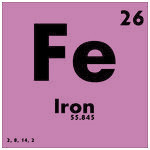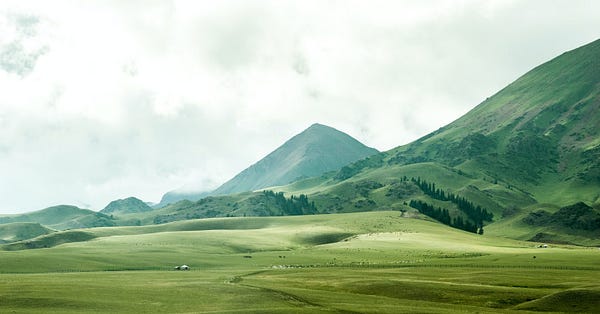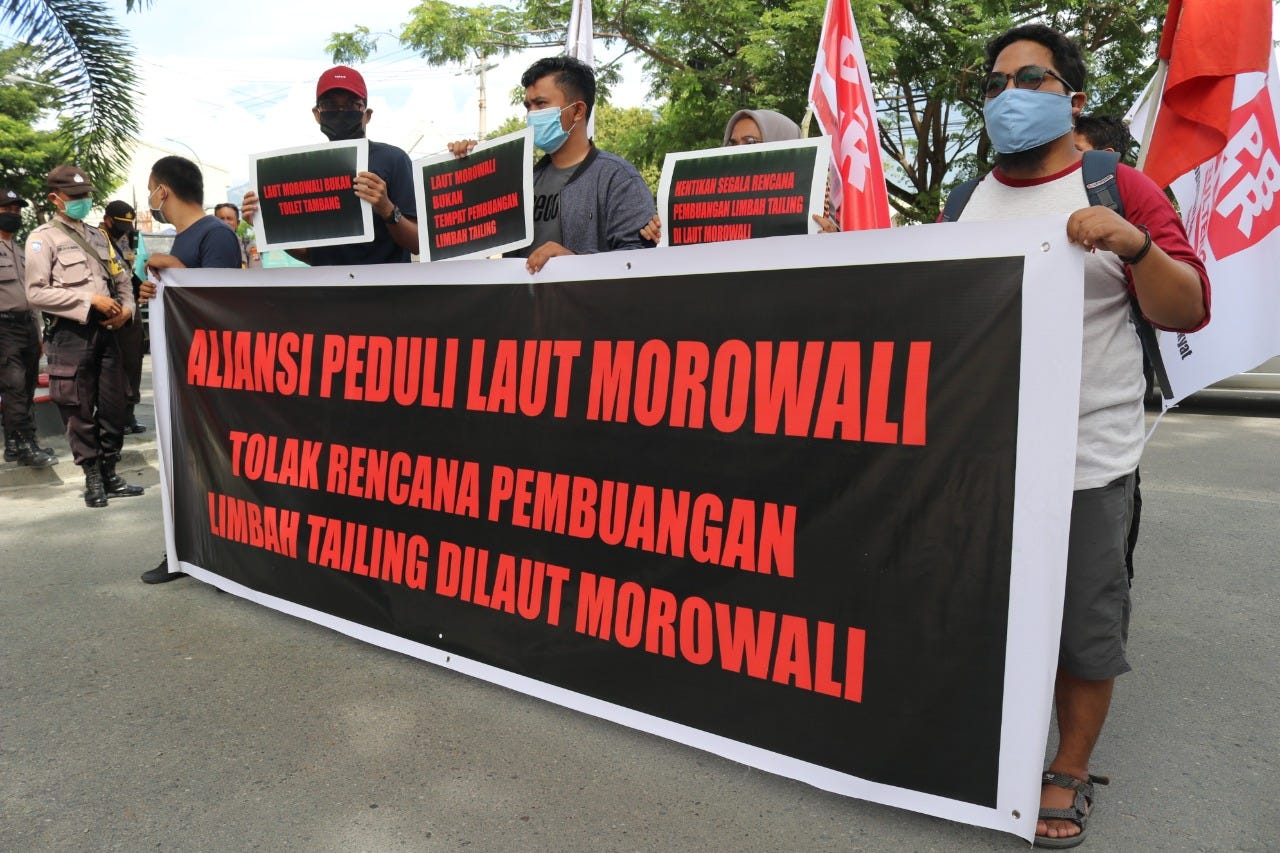Low carbon scores low on human rights
A benchmark is released, Australia sets records, a protest in Indonesia
Renewable energy companies are at risk of being trapped in the same human rights legacy that their dirty energy ancestors left for them. Hydropower dams, geothermal plants, and mines are massive enterprises, and they’re still prone to abuses and environmental damages if left unchecked.
The Business and Human Rights Resource Centre wants to establish a benchmark for clean energy companies. The Centre built a scoring tool to assess whether human rights allegations against clean energy companies can be appropriately addressed. They call it the Renewable Energy and Human Rights Benchmark. It’s adapted from the Corporate Human Rights Benchmark and adds indicators specific to the renewable energy industry like indigenous rights.
To demonstrate the benchmark, the Centre selected 16 companies representing 130,000 MW of renewable power listed on Bloomberg’s New Energy Finance database. That’s a tiny fraction of the total 2,351,000 MW globally.
Its first report, out last Monday, has dismal results.
The results of the benchmark suggest that none of the companies analysed are currently fully meeting their responsibility to respect human rights, as defined by the UN Guiding Principles. Nearly half the companies benchmarked (7/16) scored below 10%, with three quarters (12/16) scoring below 40%. The average score was just 22%, indicating that, as a whole, the industry has a long way to go to demonstrate its respect for the human rights of communities and workers in their operations and supply chains. [my emphasis]
For example, scoring below 10% was BlackRock, an investment company included due to its hefty renewable energy ownership. BlackRock sent shock waves through the financial industry when it announced earlier this year that it would focus investment on addressing the climate crisis. It complained that the Centre did not consult them before publication, although the Centre says it requested comment six times. BlackRock says it upholds human rights policies and follows the policies of their clients.
I recommend exploring the benchmark’s case studies, which include geothermal plants contaminating water, land grabs for solar plants, and others.
Weekly InQuarry
How can Australia be setting mineral records during a pandemic?
Most mines around the world are struggling because they’ve either become hotspots for COVID-19 or hotspots for criticism by activists. In some places, dozens of people test positive, but the mine keeps running.
But amid all that, Australia’s mineral exports are setting records amid the pandemic. The “resources and energy” stats have reached new heights, even as those figures include natural gas and coal, which continue to shrink.
So what has been happening to account for this? (The pandemic accounts for five months of the yearly reporting period.)

Iron (Flickr)
The government believes its numbers were boosted because everyone wants gold and iron ore – both used in clean energy tech.
Two notable things happened those industries over the last year.
Mineral production in eastern Australia was likely to be struck down by a crippling drought, but companies began a “highly unusual move” to extract groundwater and pump out flooded mines, according to the WSJ.
Just last month, Aboriginal Peoples in Australia claimed iron ore miner Rio Tinto not only destroyed culturally significant caves, but it knew they were culturally significant. In past decade, mining companies have requested 463 times to destroy Aboriginal sites and have never been rejected. Rio Tinto called it a “misunderstanding”, but the areas are to be mined as part of their “normal mine sequence.”
I found a gem
Massey University of New Zealand is hosting a top-notch conference completely online and completely free. Until July 10, researchers will discuss perspectives on extractivism – that messy process of sucking up natural resources and spreading them worldwide.


Protest against ocean dumping in my report
Indonesia wants to produce the world’s nickel for batteries. To do that, they’ve approved processing plants that use an acidic method to extract nickel. For every ton of nickel, roughly 100 tons of waste is created. The companies plan to dispose of that waste in the ocean. It will be one of the largest ocean dumping projects in the world if it goes forward.

Above, local activists protest in Palu, Central Sulawesi, Indonesia. Their sign reads “The Morowali Sea Care Alliance opposes plans to dispose of waste tailings into the ocean at Morowali.” Morowali is the center of Indonesia’s nickel industry. Researcher Arianto Sangadji sent me this photo, and he also happened to write an extensive report on the labor and environmental issues as Indonesia seizes the nickel market.
Harita Group, which is opening one of five battery nickel and cobalt plants in Indonesia, is exploring plans using this method, called DSTD. The impacts are not well understood, but experts generally agree that it smothers undersea life and has the potential to contaminate the ocean with toxic heavy metals. Locals in Papua New Guinea are suing a similar mining project (my story), alleging eight years of environmental destruction that have impacted local health and livelihoods.
The company didn’t respond to my report, but they sent a response to the Business and Human Rights Resource Centre this week. Read it here and below. Chinese Companies Tsingshan, GEM, and Huayou plan to build the other four plants. They haven’t responded to my requests for comment, and the Centre reached out to Tsingshan and GEM.
From Harita’s response:
Our company recognizes the worries of international communities on DSTP and it will invest in identifying and addressing these risks, not merely once at the onset of the proposed project; it will roll out a significant impact monitoring program.
Stayed tuned for Pebbles
Too much news, I have to sift out the nuggets. Pebbles will come tomorrow with more tidbits of news in industry, research, and environment and human rights topics.
Subscribe with just your email, and weekly reports with round-ups and original reporting will go directly to your inbox. It’s free! (for now)
These topics are relevant to anyone who consumes energy. If you know someone like that, share freely!




